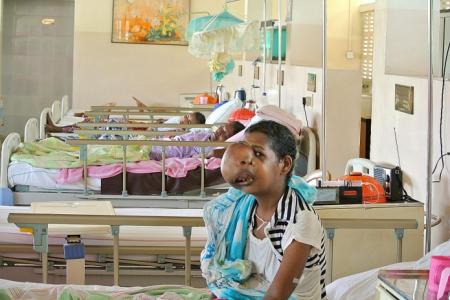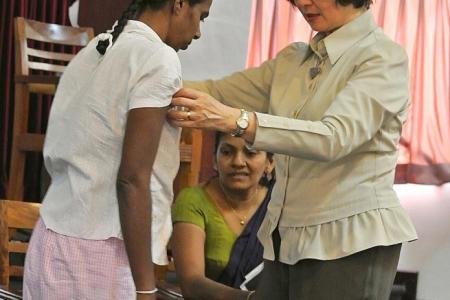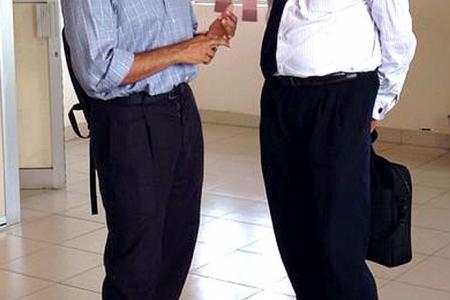Helping the sick to die with dignity
S'porean doctors in Sri Lanka to teach palliative care
It was a promise made by his late father.
A promise Singaporean doctor Lalit Krishna, 44, grew up listening to.
"My great grandparents on both sides were Sri Lankan Tamil, and my father, who was an anaesthetist, had always wanted to return to help the sick," he tells The New Paper on Sunday.
But it was not to be.
His father died about three years ago and did not get to fulfil that wish.
"One of the things I promised him was to come to Sri Lanka and do my part," says Dr Lalit, a palliative care consultant with the National Cancer Centre Singapore.
He was one of four specialists who flew to Colombo last week, along with two nurses.
The medical staff, from Singapore and Australia, trained a group of 50 local doctors, nurses and medical social workers on how to help the terminally ill die with dignity and minimal pain.
They were there as part of a $1.8 million programme by the Lien Foundation, a Singapore philanthropic group, and the Asia Pacific Hospice Palliative Care Network (APHN), to build expertise in palliative care in Asian countries.
The four-year initiative started last year in Myanmar and Bangladesh.
Five more training stints in Sri Lanka will be held over the next two to three years. The rate of cancer in the country has risen from 31.6 per 100,000 in 1985, to 68 per 100,000 in 2007.
Associate Professor Cynthia Goh, who led the team of experts, said that with cases of cancer growing rapidly, early detection would be ideal.
But with many from the rural areas seeking help too late, palliative care, instead of aggressive treatment, is integral in the healthcare system.
Dr Iresh Jayaweera, secretary of the Cancer Care Association, says: "While Sri Lanka is a developing country with a free health system, its development of palliative care is very slow due to lack of funds and expertise."
Over the past week, Dr Lalit, along with the medical team, helped participants understand the need for such care.
They discussed cases, visited the wards, comforted families and adjusted pain medication.
Sri Lankan nurse Lalitha Meedoda, 50, was surprised that managing a dying patient also meant managing the family and knowing the issues that were worrying him, such as his children and the family's financial situation.
"With the clear way the faculty has explained and demonstrated, it now makes me more aware of how to manage my patients," she says.
Dr Lalit, who was initially training to be an obstetrician and gynaecologist, says he switched his speciality to palliative care to make a difference.
He says: "I became a doctor to help the poorest of the poor. The end of life is where you find the most vulnerable patients, and it is here where we doctors make the biggest difference."
Get The New Paper on your phone with the free TNP app. Download from the Apple App Store or Google Play Store now



